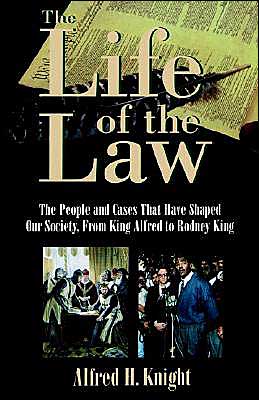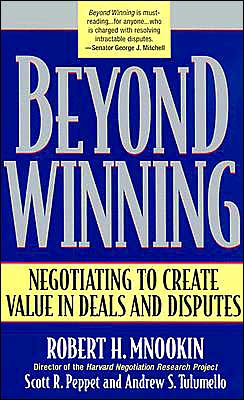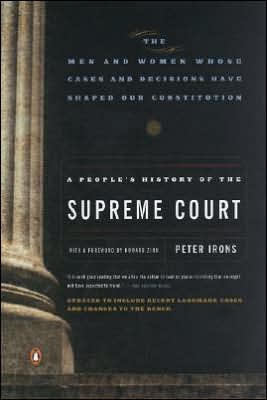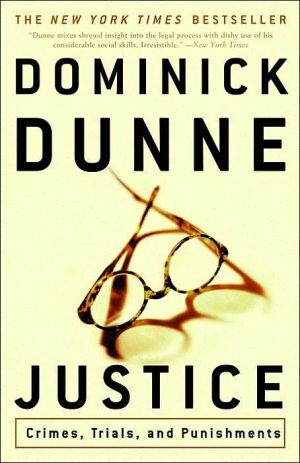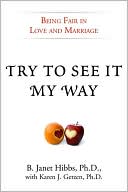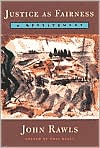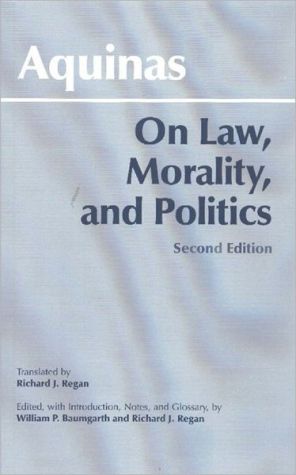The Life of the Law: The People and Cases That Have Shaped Our Society, from King Alfred to Rodney King
Law is intended to apply to common life and should be comprehensible to ordinary folk, but increasingly, it is not. The meaning of the law is becoming inaccessible, not only to the public but to the bar itself. In The Life of the Law, Alfred H. Knight outlines how some of the main contours of American law came to be as he recounts twenty-one stories beginning with Alfred the Great in the late ninth century and ending with the Rodney King trials in 1993.\ Knight gives us a veritable...
Search in google:
Law is intended to apply to common life and should be comprehensible to ordinary folk, but increasingly, it is not. The meaning of the law is becoming inaccessible, not only to the public but to the bar itself. In The Life of the Law, Alfred H. Knight outlines how some of the main contours of American law came to be as he recounts twenty-one stories beginning with Alfred the Great in the late ninth century and ending with the Rodney King trials in 1993. Knight gives us a veritable "biography" of our legal tradition by focusing on the key individuals, and the pivotal cases that have helped to mold the law as we know it today. The Life of the Law finds a riveting story behind each historic decision and recounts the tales with both narrative flair and ironic wit. The law is a living organism, constantly changing as new cases are decided, building on and modifying decisions that went before. Every case, no matter how lofty the principles involved, represents a human drama, a clash of competing desires. Alfred Knight's reflections on how twenty-one of these cases have left their mark on our society will inform and fascinate anyone interested in the law. Publishers Weekly Knight, a Nashville lawyer and former federal prosecutor, here makes law accessible with lively, textured sketches of landmark cases and principles. He recounts the story of the Magna Carta, which actually focused on obscure issues and mundane problems but contained the seed of modern constitutionalism: the king is subject to the law. He explains how precedent has been used to incrementally transform the common law (of liability, etc.) but has been treated more cavalierly when the Supreme Court addresses constitutional questions. Knight does not preach legal majesty: while he suggests that Court rulings on press freedom have fostered a free society, the 'trick will be to maintain that marketplace in times of peril.' Similarly, after tracing the history of the Fourth Amendment's protection against unlawful searches and seizures, Knight observes that the Court has been recently moving backward; there is no straight line of constitutional progress. In a few places -- as when he erroneously suggests that the Rodney King case was the first time the legitimacy of a jury's decision was questioned-Knight stumbles, but this is mostly a savvy popularization.
Introduction11Nationalizing English Justice (Late Ninth Century)72The Rule of Law (1215)163The Bar Is Born (1291)264Binding Precedent (1454)335Man Against the State (1535)496The Right to Confront Accusers (1603)627Judicial Review (1610)718The Death of a Scapegoat (1641)799The Privilege Against Self-incrimination (1649)8910Freedom of the Press (1735)10011Unreasonable Searches and Seizures (1761-65)11512The Bill of Rights (1791)12613Constructive Treason (1807)13714Equality as Law (1853)15215Unreasonable Searches and Seizures, Continued (1886)16316The Right of Privacy (1890)17617Nationalizing American Justice (1913-23)18518The Right to Counsel (1942)19819Equality as Law, Continued21620Freedom of the Press, Continued (1964)22821Trial by Jury (1993)243Epilogue259Notes267Index275
\ Publishers Weekly\ - Publisher's Weekly\ Knight, a Nashville lawyer and former federal prosecutor, here makes law accessible with lively, textured sketches of landmark cases and principles. He recounts the story of the Magna Carta, which actually focused on obscure issues and mundane problems but contained the seed of modern constitutionalism: the king is subject to the law. He explains how precedent has been used to incrementally transform the common law (of liability, etc.) but has been treated more cavalierly when the Supreme Court addresses constitutional questions. Knight does not preach legal majesty: while he suggests that Court rulings on press freedom have fostered a free society, the 'trick will be to maintain that marketplace in times of peril.' Similarly, after tracing the history of the Fourth Amendment's protection against unlawful searches and seizures, Knight observes that the Court has been recently moving backward; there is no straight line of constitutional progress. In a few places -- as when he erroneously suggests that the Rodney King case was the first time the legitimacy of a jury's decision was questioned-Knight stumbles, but this is mostly a savvy popularization.\ \ \ \ \ Library JournalKnight, a practicing attorney and former federal prosecutor, has put together a brilliant compendium of 21 essays that chronicle the growth and development of individual rights and liberties within the Anglo-American legal and constitutional system. Early English proscriptions made unauthorized intrusion into the home a serious crime. Centuries later in America, an Ohio housewife was pushed aside by a squadron of Cleveland's worst [police officers], who were looking for a bomb suspect. Not finding the mad bomber, they instead tried and convicted the woman of possessing pornographic magazines, which the police accidentally discovered during the search. The U.S. Supreme Court saved the day by excluding the tainted evidence from admissibility at trial, in the process making Fourth Amendment protections equally applicable at all levels of American jurisprudence. Knight uses similar case studies to illustrate the role of the judiciary as a unifying and stabilizing force in both early England and modern America. -- Philip Y. Blue, New York State Supreme Court Criminal Branch Law Library\ \ \ Library JournalKnight, a practicing attorney and former federal prosecutor, has put together a brilliant compendium of 21 essays that chronicle the growth and development of individual rights and liberties within the Anglo-American legal and constitutional system. Early English proscriptions made unauthorized intrusion into the home a serious crime. Centuries later in America, an Ohio housewife was pushed aside by a squadron of Cleveland's worst [police officers], who were looking for a bomb suspect. Not finding the mad bomber, they instead tried and convicted the woman of possessing pornographic magazines, which the police accidentally discovered during the search. The U.S. Supreme Court saved the day by excluding the tainted evidence from admissibility at trial, in the process making Fourth Amendment protections equally applicable at all levels of American jurisprudence. Knight uses similar case studies to illustrate the role of the judiciary as a unifying and stabilizing force in both early England and modern America. -- Philip Y. Blue, New York State Supreme Court Criminal Branch Law Library\ \ \ \ \ LawyersKnight makes the long march of Anglo-Americans seeking both justice and fairness. . .come alive and sing. His book should be required reading for all lawyers, judges, and citizens.\ \ \ \ \ Kirkus ReviewsAn absorbing and well-written introductory history to Anglo-American law that should edify lawyer and layperson alike. Attorney Knight's book takes its title from the famous quote of Oliver Wendell Holmes: 'The life of the law has not been logic; it has been experience.' Because 'the meaning of the law is becoming inaccessible not only to the public but to the bar itself,' Knight presents a cursory but engaging and useful legal history of England and America. His historical vision sees the development of law as a haphazard series of events rather than a planned, grand scheme. Indeed, elaborating on Holmes' maxim, Knight observes, 'Courts are more like theaters than laboratories, and the truth they produce is felt and apprehended, not carefully measured out.' Thus, Knight recounts legal history as discrete stories of the people and events which have shaped the major ideologies of our law. Eschewing the turgid prose and detail which typify many legal histories, Knight uses the lighter style of a storyteller, which makes for easy and enjoyable reading. The book consists of 21 chapters discussing the origins, development, and modern applications of pivotal concepts including freedom of the press, personal privacy and the rights of the criminally accused. One of the book's strengths is Knight's debunking of many popular myths. For instance, the Magna Carta did not establish a scheme of civil rights for mankind; Sir Thomas More was noble but no 'apostle of religious tolerance'; and England's Star Chamber did not conduct secret trials. No jurisprude, Knight presents little legal philosophy and scant criticism of legal doctrines; rather, he offers a light but compelling account of the lifeof the law.\ \
